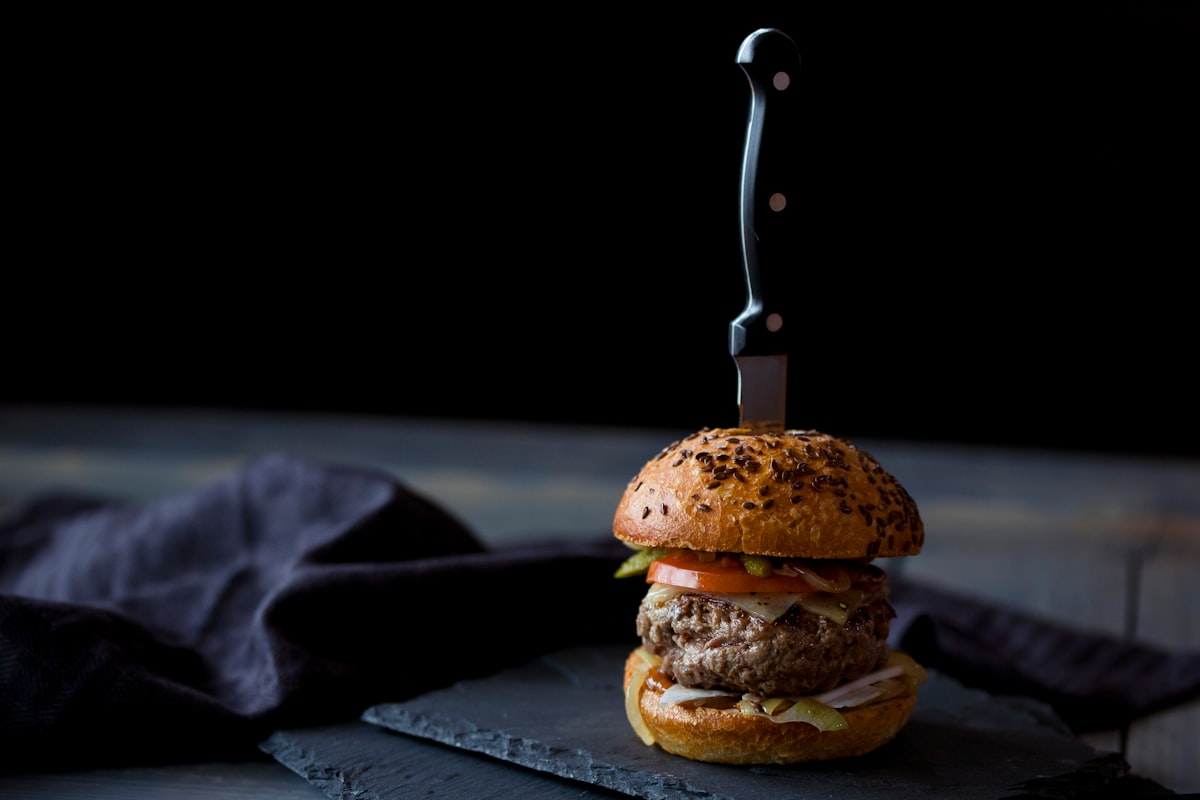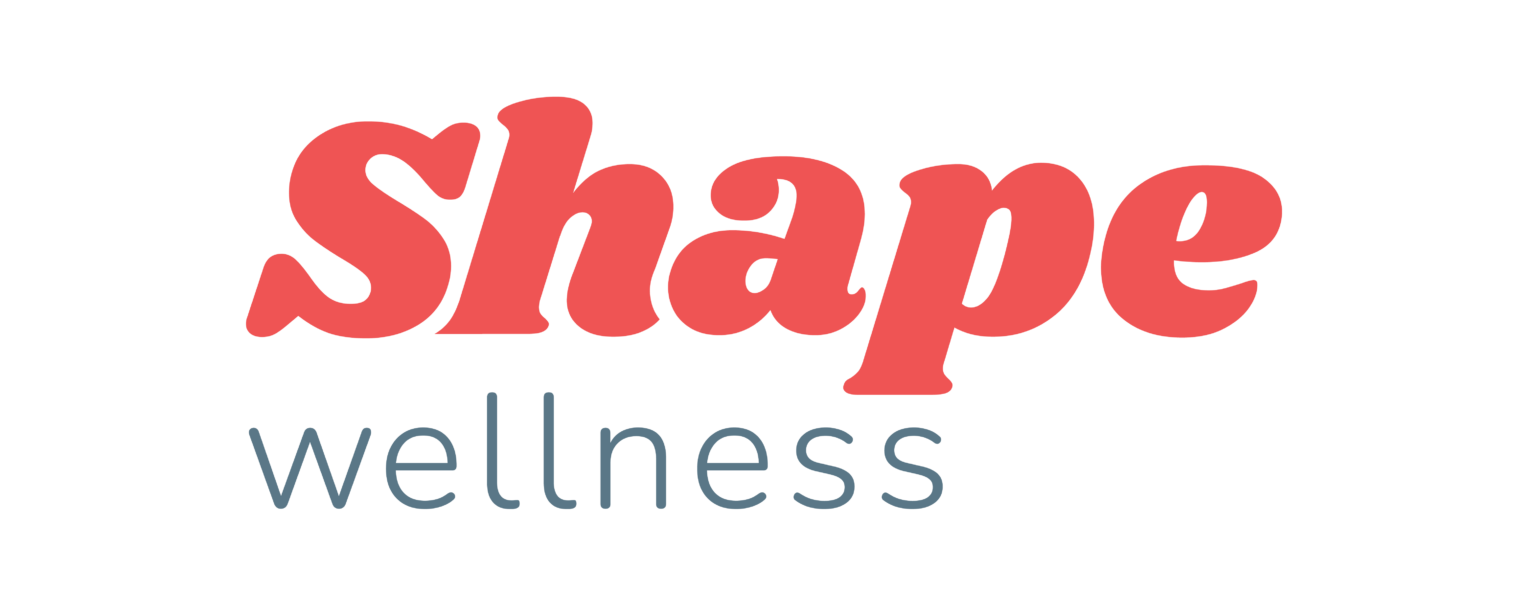When it Comes to Food, Let’s Forget Morality
Right & wrong, success & failure. Most matters of life have been siloed into 2 categories without gray areas.

Right & wrong, success & failure. Most matters of life have been siloed into two categories. We live where you can’t have gray areas. When it comes to food, what’s been taught is that things are either “good” or “bad,” especially when it comes to fat.
If you grew up in the ’80s & ’90s, I bet you can remember the war on fat.
During this movement, shelves suddenly became filled with foods labeled ‘fat-free’. Even foods that were naturally fat-free were slapped with labels as a signal that this food was safe from dreaded fat and could be consumed by the bucket full.
Ditch the fat and add all the carbs because fat is bad, but carbs are oh so good.
Do you remember grabbing that box of dried out Snackwells because you wanted a cookie without the fat? What about fat-free cheese & frozen yogurt? My personal favorite was Lays WOW fat-free potato chips that came with a tiny warning that it may cause intestinal distress and potential explosive diarrhea. I always envisioned needing to eat these while sitting on a toilet for obvious reasons.
And what about eggs? Or coffee? We’ve had conflicting reports for decades about what is good and bad. But through all of these conflicts, there is one way of eating that seems to rise to the top when it comes to health.
The Mediterranean Diet
The Mediterranean diet was in the news again for being one of the most nutritious ways to eat. The reason is the focus on whole, unprocessed foods where fat is not demonized but rather esteemed. The diet encourages fruits, veggies, nuts, legumes, whole grains, fish, lean meat, eggs, and high-quality, healthy fats.
Added sugar, processed foods, and refined grains are avoided.
But in America, we’ve been pushed to be on the go constantly, eat ultra-processed food and eat ultra-fast. It’s already caused so much damage not just to our waistlines but to our mental health too. As Dr. Uma Naidoo explains in her book, ‘This is Your Brain on Food’ nutrition is linked to mental health.
The Bad and The Good
As I’ve worked with clients, I’ve been very intentional in removing the idea of morality surrounding food. What my clients desire and what I try to build with them are ways to improve the whole of their health. It’s habits, movement, stress reduction, mind shifts, and nutrition. Changes that are often small but more sustainable. They want to change to become healthier versions because, ultimately, they want to be healthy when they’re older, not just next week.
In December 2021, the American Heart Association published its dietary guidance to improve cardiovascular health. The table for evidence-based dietary guidance to promote cardiovascular health has guidelines such as:
- Eat plenty of fruits and vegetables, and choose a wide variety
- Choose foods made with mostly whole grains rather than refined grains
- Choose healthy meat sources (nuts, legumes, fish, seafood, meat, avoiding processed meats like hot dogs & salami)
- Choose minimally processed foods instead of ultra-processed
- Minimize foods and beverages with added sugars
It looks a lot like a Mediterranean diet to me.
Nowhere in this journal did they say bad or good. The language is to choose what’s healthier and minimize what is lacking in nutritional value. We need to add in more whole fruits, veggies, nuts, fish, healthy fats, and meat. When we do this, we are adding healthier years to our lives. As you start to eat more like this, you learn what makes your body feel its best. Once you feel better, you want to keep adding more of that goodness into your daily life.
In a New York Times article, Dr. Stone was interviewed:
“Dr. Neil J. Stone, a preventive cardiologist at the Feinberg School of Medicine at Northwestern University, who praised the thoughtfulness and expertise of the guidance committee, said in an interview, “There’s no such thing as one diet that fits all, but there are principles to form the basis of diets that fit everyone.”
He added: “The goal is to make good nutrition possible for all. The healthier we can keep everybody in this country, the lower our health costs will be.”
I love Dr. Stone’s quote. I relate it to the demonizing language of bad vs. good. There is no one size fits all; it’s gray, which means fat can fit in moderation in a healthy diet, so don’t be afraid to grab that avocado. In fact, I recommend it.
So let’s remove the notion of morality concerning food. And for food's sake, let’s remove “cheat day” from our food vocabulary.
Food is fuel. Food is medicine. Not a punishment or a reward. Food is life.
Remember that each one of us is a little different, so it’s important to choose what helps your body to function at its very best. When we learn how to move and optimize our nutrition, the healthier we are.
https://academic.oup.com/jhmas/article/63/2/139/772615
https://www.healthline.com/nutrition/how-much-fat-to-eat
https://www.ahajournals.org/doi/pdf/10.1161/CIR.0000000000001031
